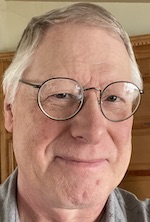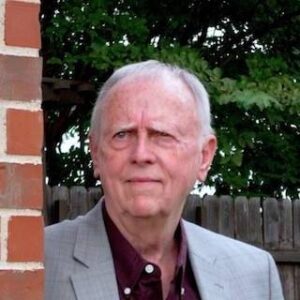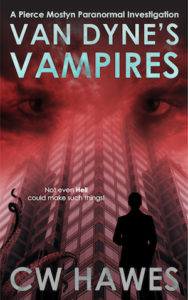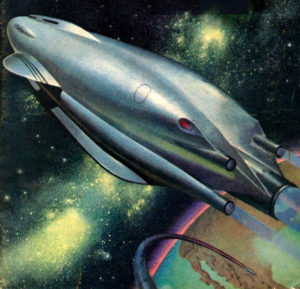Not everyone is a writer, but every one of us has a book within. Of course, some of us have more than one book and even then there may not be enough for us to be professionals. But that is alright. Because in this wonderful day and age, we can get our books published and not worry about anything else other than sending them out into the world.
Every occupation has hobbyists, amateurs, and professionals and that includes writing. Let’s take a little deeper look into each of these categories and see what they mean.
Hobbyist
What is a hobbyist writer? A hobbyist is one who engages in an activity for the fun of it. I enjoy playing board games. They’re fun. They constitute one of my hobbies.
People can write for a hobby, as well. I think most fan fiction writers are hobbyists. They write for the fun of it. So too many writers who are on platforms such as Wattpad.
These folk enjoy writing. However, they have lots of other interests and little to no desire to make writing number one in their life. Perhaps like bike riding for me. I enjoy it, but I have no desire to go on a road trip or engage in racing or participate in a club. I just like to ride my bike every now and again.
Writing as a hobby twenty or more years ago was pretty much a solo activity. Perhaps you shared your poems and stories and novels with family and friends. Perhaps got the shorter works published in magazines or fanzines and got a couple contributor’s copies for payment. Anything beyond that was pretty difficult.
Not today, however. Today, it’s easy to share your work with the world. If you want to. And who knows? You might decide you like writing enough to move to the next level.
Amateur
I’m not referring to someone who’s a bad writer. As in Oh, my God. He’s such an amateur!
No, I’m referring to a dedicated person who loves writing, has to write, but chooses not to make a career of it.
Many vocations have people who make an interest an avocation instead of their vocation. Why? For any number of reasons. For one, unless you are a tech writer employed by a company, you will probably be self-employed as a writer. And not everyone wants the uncertainties of self-employment. Others may truly love their day jobs and don’t want to give them up for a career as an author. So writing may become a part-time job for them.
For many years the Victorian novelist, Anthony Trollope, was an amateur writer. Even after he started achieving critical acclaim and a sizable income from writing, he held onto his post office job. He liked working at the post office and he liked the security a regular paycheck gave him. It wasn’t until he was passed over for promotion that he became disgruntled and quit the post office. By that time, however, he was earning a very large income from writing and felt secure to make his living solely as a novelist.
Being an amateur isn’t a bad thing. It simply means you don’t want to write for your day job. Not that you aren’t good enough.
Professional
Many writers, however, dream of earning their living via the pen (or keyboard as the case may be). And many people do indeed support themselves by writing. But most do so by writing non-fiction, rather than fiction. And this has been the case for many, many years now.
I remember back in the ‘80s the sage advice, if you wanted to be a freelance writer, was to write articles for the women’s magazines. The market was large and the demand was high.
When Woman’s World was new, I recall an article on growing orchids. At the time I was a serious orchid grower, with hundreds of plants. What was quickly obvious was that the writer of the article didn’t really know anything about orchids. He made too many factual errors. I began tracking that particular writer’s articles and noted two things: he was good with a camera and he wrote lots of articles. He was a pro writer. Making his living selling to women’s and other non-fiction magazines.
Making a living from fiction is difficult. It isn’t impossible; there are, though, far easier ways to make a buck.
Recently, I’ve noticed more and more indie fiction writers moving over to non-fiction by offering lessons on how to write or market your books. Claiming Amazon or USA Today bestseller credentials, they offer to tell you (for a hefty price tag) how you can do it too.
Why are they doing this? Because it’s easier than writing and publishing and marketing 4 or 5 novels a year. All you do is create a course, video record it, and you’re done. Simply advertise said course, collect the fees, and press “play”. And then “repeat” for the next group and the next one after that.
Now I don’t mean to be cynical. I’m simply saying these writers have found it’s easier to make a living via non-fiction than fiction. Something pros have known for over half a century.
What Kind of Writer Are You?
I make no bones about it. I want to be a professional novelist. Hopefully, one day I’ll succeed.
However, I won’t be sad if I end up being a serious amateur. Why? Because, due to today’s technology and opportunities, even as an amateur, I can publish and market my books and make at least some money doing so. And which I’m doing right now. Every month I earn a few buck from Amazon and the outlets I’ve signed up for through Draft2Digital. And that is a nice feeling. A very nice feeling.
What about you? What kind of writer are you?
A hobbyist? Nothing wrong with that. Have fun and share your fun with the world.
An amateur? Good for you. Self-employment is not for everyone. But that doesn’t mean you can’t be serious about your poetry, short stories, or novels. And who knows? You might end up just like Anthony Trollope.
Maybe you’ve scaled the mountain. You’re on the peak. You’re a pro. Congratulations! Your hard work paid off and you deserve your reward. I envy you and also am inspired by you. Onwards and upwards!
As always, I look forward to your comments. And until next time, happy reading!
Share This!

 CW Hawes is a playwright; award-winning poet; and a fictioneer, with a bestselling novel. He’s also an armchair philosopher, political theorist, social commentator, and traveler. He loves a good cup of tea and agrees that everything’s better with pizza.
CW Hawes is a playwright; award-winning poet; and a fictioneer, with a bestselling novel. He’s also an armchair philosopher, political theorist, social commentator, and traveler. He loves a good cup of tea and agrees that everything’s better with pizza.

